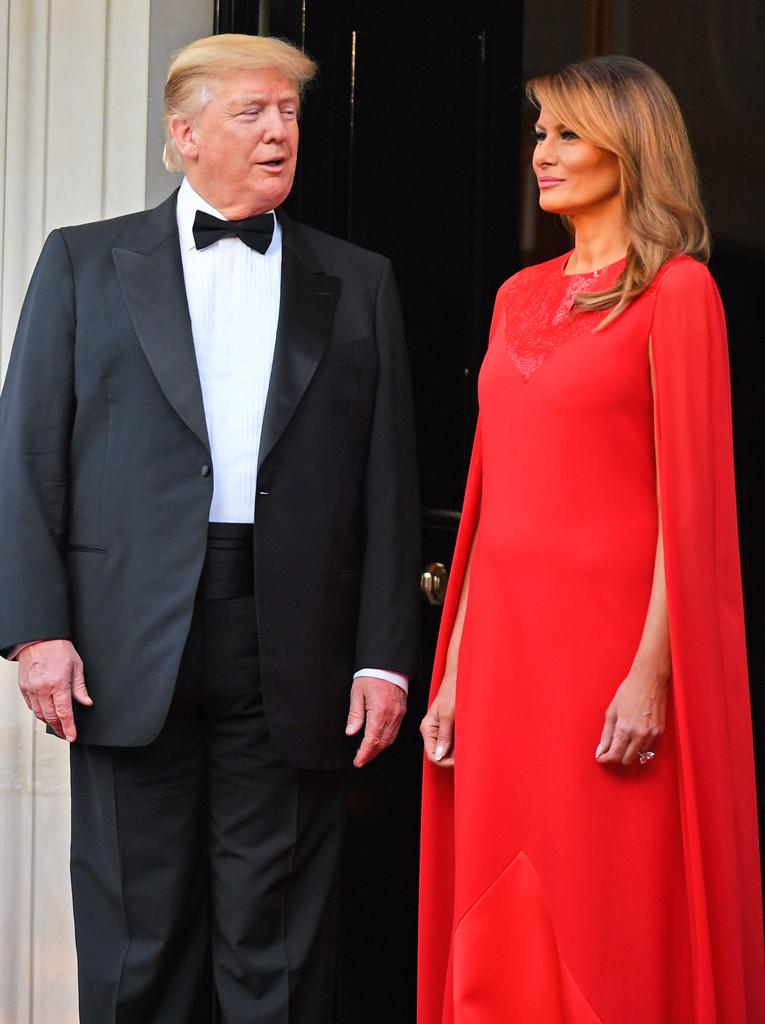Controversial topics often spark heated debates, and one such topic involves policies aimed at influencing societal structures. In recent years, discussions around marriage, birth rates, and citizenship have taken center stage in political discourse. Among these discussions, President Trump's administration has introduced various executive orders that touch upon these sensitive issues. This article delves into the shocking advice proposed by a controversial couple to boost Trump's birthrate policy, offering insights into their unconventional suggestions.
The couple in question has garnered significant attention for their bold propositions concerning family planning and societal norms. Their recommendations challenge traditional views and have sparked widespread debate about the implications of such policies on American society. As we explore their advice, it becomes evident that their ideas could potentially reshape how policymakers approach birthrate challenges. Below, we examine the details of their proposals and analyze their potential impact on current policies.
Trump's Vision: Reflecting Project 2025 Policies
President Trump has consistently distanced himself from the controversial policy blueprint known as Project 2025. However, his administration's actions seem to align with some of its core tenets. One notable area where this alignment is apparent is in his approach to marriage and birth rates. By implementing restrictions on abortion, Trump aims to encourage higher birth rates, a goal central to Project 2025's vision. This strategy seeks to address demographic concerns by promoting family values and increasing population growth.
Despite the controversy surrounding these measures, proponents argue that they are necessary to sustain economic stability and ensure a robust workforce. Critics, however, raise concerns about the potential infringement on personal freedoms and reproductive rights. The debate continues as stakeholders weigh the benefits against the ethical dilemmas posed by such policies.
As the administration navigates these complex issues, it remains crucial to consider the broader implications of adopting strategies reminiscent of Project 2025. Balancing individual liberties with national interests presents a formidable challenge that requires careful consideration and open dialogue among all affected parties.
Birthright Citizenship: A Constitutional Debate
Recently, President Trump signed an executive order aimed at altering the longstanding principle of birthright citizenship. This move seeks to deny U.S. citizenship to certain babies born within the country's borders, a right traditionally guaranteed by the Constitution. The administration argues that this change is essential to control immigration and protect national sovereignty. However, legal experts assert that such an order blatantly violates constitutional provisions.
The executive order has ignited fierce debate over the interpretation of the 14th Amendment, which grants citizenship to anyone born on American soil. Opponents claim that attempting to rescind this right without amending the Constitution is unconstitutional and sets a dangerous precedent. They emphasize the importance of upholding fundamental rights enshrined in the nation's founding documents.
In response to the controversy, federal judges have intervened, issuing temporary injunctions to block the implementation of Trump's order. These judicial decisions highlight the critical role of the judiciary in safeguarding constitutional principles and ensuring that executive actions comply with established laws. As the legal battle unfolds, the outcome will undoubtedly shape future discussions on immigration policy and citizenship rights.
Maternal Mortality: Addressing a Growing Concern
Maternal mortality rates have been steadily rising in the United States, drawing attention to systemic issues within the healthcare system. When a woman dies during pregnancy, childbirth, or the postpartum period, it not only affects her life but also leaves a lasting impact on her family and community. This alarming trend underscores the urgent need for comprehensive reforms to improve maternal health outcomes.
A Yale Medicine obstetrician-gynecologist recently highlighted eight key factors contributing to this crisis. These include inadequate prenatal care, racial disparities in healthcare access, and insufficient support for postpartum recovery. Addressing these challenges requires a multifaceted approach that prioritizes equitable access to quality healthcare services for all women.
Efforts to combat maternal mortality must involve collaboration between policymakers, healthcare providers, and advocacy groups. By implementing evidence-based interventions and fostering a culture of safety and inclusivity, it is possible to reverse this troubling trend and ensure that every mother receives the care she deserves. Such initiatives are vital for creating a healthier, more resilient society.

